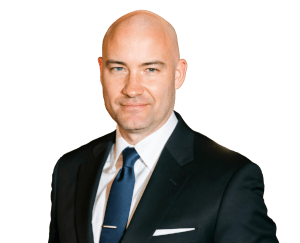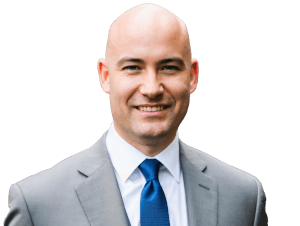Losing a loved one in a nursing home due to abuse or neglect is a devastating experience no family should endure. When wrongful death occurs as a result of a care facility’s negligence or misconduct, families have the right to seek justice.
At Schenk Nursing Home Abuse Law, our Savannah wrongful death nursing home abuse lawyers are here to support you during this painful time and help you hold the responsible parties accountable. We’ve recovered millions of dollars for families like yours.
If your loved one’s death was caused by abuse or neglect, our Savannah nursing home abuse lawyers can guide you through your legal options. Whether through negotiation or litigation, we will work to ensure your family receives the justice and compensation you deserve.
What Is Wrongful Death in a Nursing Home?
Wrongful death in a nursing home occurs when a resident dies due to abuse, neglect, or the failure of the facility to provide proper care. These tragedies often stem from preventable situations, making the loss even more painful for families.
Some common causes of wrongful death in nursing homes include:
- Neglect of medical needs: Failing to administer medications, monitor health conditions, or respond to emergencies
- Malnutrition or dehydration: Inadequate attention to residents’ basic nutritional and hydration needs
- Infections or sepsis: Unsafe or unsanitary conditions leading to fatal infections
- Physical abuse: Intentional harm, such as hitting or rough handling, resulting in fatal injuries
- Falls or accidents: Lack of supervision or unsafe environments causing life-threatening injuries
If you suspect your loved one’s death could have been prevented, consulting a Savannah wrongful death nursing home abuse lawyer from our firm is the first step toward holding the responsible parties accountable.
For a free legal consultation with a nursing home wrongful death lawyer serving Savannah, call

Who Can File a Nursing Home Wrongful Death Lawsuit?
In Georgia, the law specifies who has the right to file a wrongful death claim. This is typically limited to close family members, following a specific order of priority:
- Spouse of the deceased: If the resident was married, their spouse has the first right to file a claim.
- Children of the deceased: If there is no surviving spouse, the children may pursue the claim.
- Parents of the deceased: If the resident had no spouse or children, the parents can file the lawsuit.
- Estate representative: If no immediate family is eligible, the administrator of the deceased’s estate can file a claim on behalf of the estate.
An experienced attorney can help you determine who is eligible to file the claim and guide you through the process of pursuing justice for your loved one.
Savannah Nursing Home Wrongful Death Lawyer Near Me (678) 823-7678
What Compensation is Available in a Nursing Home Wrongful Death Case?
Wrongful death lawsuits aim to provide financial compensation to the family and hold negligent parties accountable. Compensation may include both economic and non-economic damages, reflecting the full impact of the loss.
- Economic damages: These include measurable costs, such as medical expenses incurred before death, funeral and burial costs, and the loss of the deceased’s financial contributions.
- Non–economic damages: These address intangible losses, such as the deceased’s pain and suffering, the family’s grief, and the loss of companionship and guidance.
Every case is unique, and the specific compensation depends on the circumstances. We work closely with families to evaluate their claims and pursue maximum compensation for their losses.
How Can a Savannah Wrongful Death Nursing Home Abuse Lawyer Help?
Handling a wrongful death case while grieving the loss of a loved one can be overwhelming. A compassionate lawyer can provide the guidance and support you need to navigate this difficult process.
Investigating the Circumstances
Our team will conduct a thorough investigation into the circumstances of your loved one’s death. This includes reviewing medical records, interviewing witnesses, and examining the care facility’s practices to identify negligence or abuse.
Building a Strong Case
We gather evidence to establish how the facility’s actions or inactions directly contributed to the wrongful death. This includes identifying violations of state and federal care standards, as well as any history of negligence at the facility.
Advocating for Justice
Whether through negotiation or litigation, we are committed to holding the responsible parties accountable. If the care facility offers a settlement, we will ensure it reflects the full extent of your family’s losses. If necessary, we will take your case to court to seek the justice your loved one deserves.
At Schenk Nursing Home Abuse Law, our goal is to handle the legal complexities so your family can focus on healing. We’ve received many positive client reviews proving the success of our efforts.

Why Accountability Matters in Nursing Home Wrongful Death Cases
Wrongful death cases are about more than financial compensation—they’re about ensuring accountability and preventing future harm. When a nursing home is held responsible for its negligence, it encourages better practices, training, and oversight to protect other residents.
By taking legal action, you not only seek justice for your loved one but also contribute to improving the standard of care in nursing homes throughout Savannah and beyond. Your case can make a difference in preventing similar tragedies from happening to other families.
Contact Schenk Nursing Home Abuse Law Today
If your loved one suffered a wrongful death due to nursing home abuse or neglect in Savannah, you don’t have to face this alone. At Schenk Nursing Home Abuse Law, we are dedicated to providing compassionate and experienced legal representation to help your family seek justice.
Contact us today to discuss your case. Even if we cannot take your case, we will provide resources and guidance to help you understand your rights and protect your loved one’s legacy.
Let us help you take the first step toward holding negligent parties accountable and ensuring no other family endures the same pain.



